Nominated innovations
1000 innovative clean energy solutions and > 150 framework enablers with the potential to deliver more than twelve gigatonnes of avoided emissions by 2030
These assessments are based on a basic avoided emission assessment. The overall concept of avoided emissions is that a solution (product or service) enables the same function to be performed with significantly less GHG emissions. The method of measuring avoided emissions, is to compare a baseline scenario without the enabling solution, with a scenario using the enabling solution; whereby the baseline represents the ‘business as usual’ (BAU) scenario.
These assessments are based on the framework document: The Avoided Emissions Framework (AEF) from September 2020
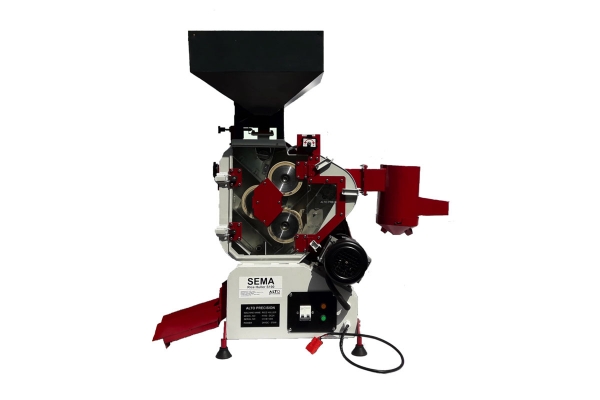
Solar powered small-scale agricultural machines
ALTO precision’s aim is to develop a range of solar-powered small-scale decentralised machinery for remote small holding agri-processing needs in India. Their current developments include a range of small-scale rice processing machines. The solar rice huller is a 360 W machine that can produce 100 kg/hour with a hulling efficiency of 98% in the first pass, which ALTO precision claims is the most efficient small-scale rice processing machine in the world, almost 50% more efficient than any other machine, at a low price. The machines are solar powered, high capacity and very efficient, giving farmers access to a sustainable energy source and providing food security and the opportunity to create an additional income.
India
≈1

ALTO Precision
Solar powered small-scale agricultural machines
ALTO precision’s aim is to develop a range of solar-powered small-scale decentralised machinery for remote small holding agri-processing needs in India. Their current developments include a range of small-scale rice processing machines. The solar rice huller is a 360 W machine that can produce 100 kg/hour with a hulling efficiency of 98% in the first pass, which ALTO precision claims is the most efficient small-scale rice processing machine in the world, almost 50% more efficient than any other machine, at a low price. The machines are solar powered, high capacity and very efficient, giving farmers access to a sustainable energy source and providing food security and the opportunity to create an additional income.
≈1Mt CO2e/year
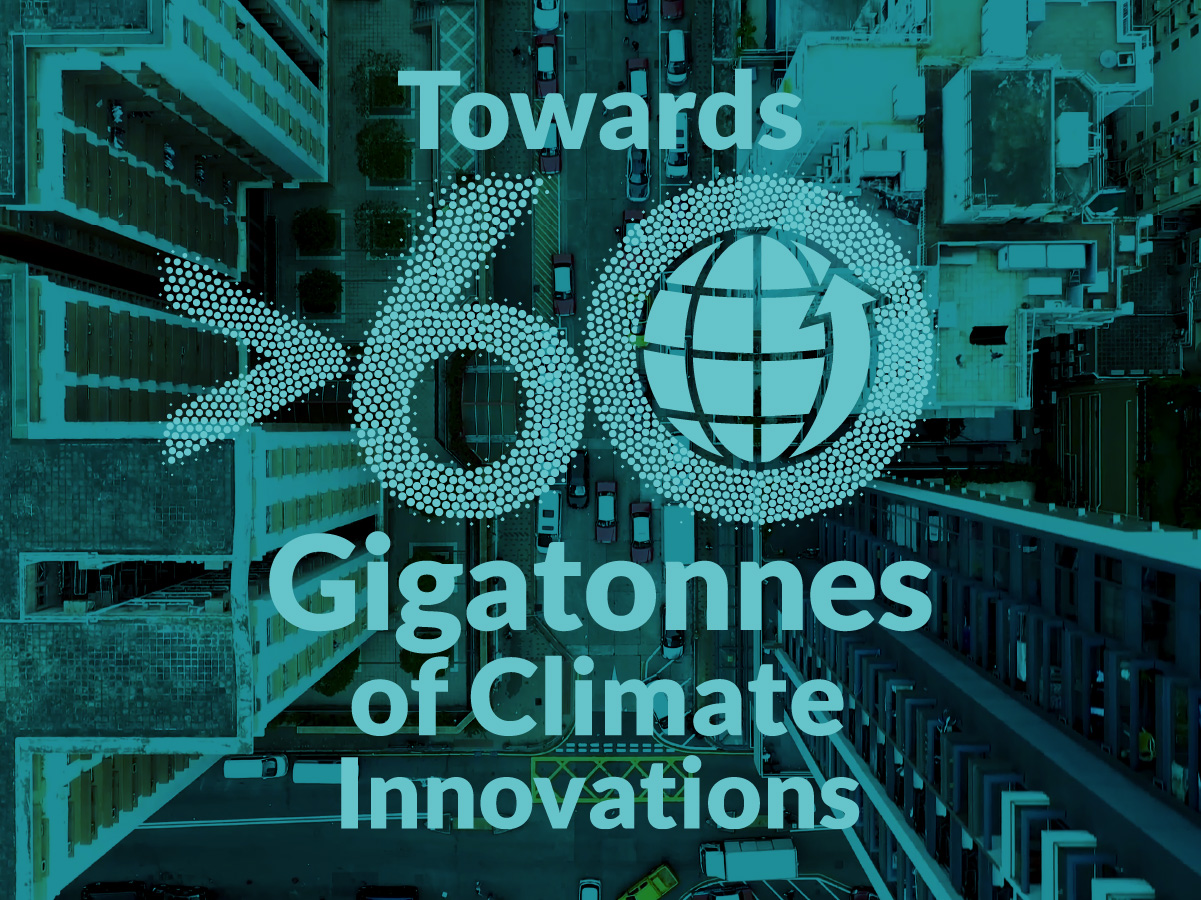
Portable biomass densification technology
Takachar developed technology at the Massachusetts Institute of Technology (MIT) and licensed it in order to develop small-scale, low-cost, portable biomass treatment systems that can be attached to the back of tractors, trailers, or even donkey carts. The innovation can be deployed on farms in remote areas to take small pockets of biomass residues and process them onsite into a chemically densified form that is moisture-resistant and volumetrically dense. This can reduce the logistical, collection, and disposal cost by about 75% compared to current alternatives such as baling and pelleting. The innovation therefore provides farmers with a cost-effective way to clear their land of crop residues after harvest.
India

Takachar
Portable biomass densification technology
Takachar developed technology at the Massachusetts Institute of Technology (MIT) and licensed it in order to develop small-scale, low-cost, portable biomass treatment systems that can be attached to the back of tractors, trailers, or even donkey carts. The innovation can be deployed on farms in remote areas to take small pockets of biomass residues and process them onsite into a chemically densified form that is moisture-resistant and volumetrically dense. This can reduce the logistical, collection, and disposal cost by about 75% compared to current alternatives such as baling and pelleting. The innovation therefore provides farmers with a cost-effective way to clear their land of crop residues after harvest.
Currently unavailable
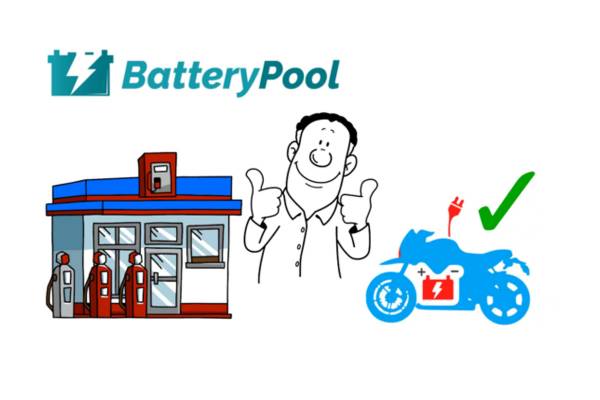
Battery-swapping service for two-wheeler EV users
Batterypool offers a battery-swapping service for users of two-wheeler electric vehicles (EVs). The company claims that using this app-enabled swapping service, users will have their two-wheel EV fully charged in under 1 minute, compared to 4 hours with plug-in charging. They further claim that their solution also makes owning a two-wheeler EV 30 % cheaper than its petrol counterpart. The battery swapping service is enabled by patent-pending swap station hardware, product design, a small business retail model and an Internet-of-Things layer. With this solution, the intention is to drive the mass adoption of electric mobility among two-wheelers.
India
≈10

Batterypool
Battery-swapping service for two-wheeler EV users
Batterypool offers a battery-swapping service for users of two-wheeler electric vehicles (EVs). The company claims that using this app-enabled swapping service, users will have their two-wheel EV fully charged in under 1 minute, compared to 4 hours with plug-in charging. They further claim that their solution also makes owning a two-wheeler EV 30 % cheaper than its petrol counterpart. The battery swapping service is enabled by patent-pending swap station hardware, product design, a small business retail model and an Internet-of-Things layer. With this solution, the intention is to drive the mass adoption of electric mobility among two-wheelers.
≈10Mt CO2e/year
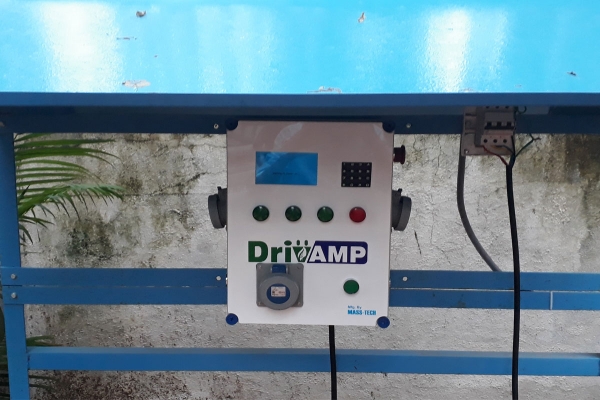
Level-2 AC universal EV charging stations
DrivAmp provides solutions for smart electric vehicle charging infrastructure to enable the transition to global electric mobility through products and software services. DrivAmp has developed a range of level-2 AC charging stations ranging in capacity from 3.3 kW to 43 kW power outputs which they claim are capable of charging all types of electric vehicles. This includes a protocol to ensure maximum safety of users and at the same time the ability to cater to most vehicles in the Indian electric vehicle market. Furthermore, the goal is to help enterprises to set up a network of electric vehicle charging stations with a focus on safety, security and energy access.
India
≈10

DrivAmp
Level-2 AC universal EV charging stations
DrivAmp provides solutions for smart electric vehicle charging infrastructure to enable the transition to global electric mobility through products and software services. DrivAmp has developed a range of level-2 AC charging stations ranging in capacity from 3.3 kW to 43 kW power outputs which they claim are capable of charging all types of electric vehicles. This includes a protocol to ensure maximum safety of users and at the same time the ability to cater to most vehicles in the Indian electric vehicle market. Furthermore, the goal is to help enterprises to set up a network of electric vehicle charging stations with a focus on safety, security and energy access.
≈10Mt CO2e/year

Bio-Urja: low cost dry anerobic digestor
BioUrja is an efficient ready-to-assemble biogas generator from waste with remote monitoring system. Apart from producing biogas to replace fossil fuels, you also get organic manure as the byproduct. In addition, this relieves the need to treat hazardous human waste. BioUrja is an easy to setup solution with a two year payback time. The system provides biogas, avoiding emissions through fossil-fuels that would be used instead.
India

GPS Renewables private limited
Bio-Urja: low cost dry anerobic digestor
BioUrja is an efficient ready-to-assemble biogas generator from waste with remote monitoring system. Apart from producing biogas to replace fossil fuels, you also get organic manure as the byproduct. In addition, this relieves the need to treat hazardous human waste. BioUrja is an easy to setup solution with a two year payback time. The system provides biogas, avoiding emissions through fossil-fuels that would be used instead.
Currently unavailable
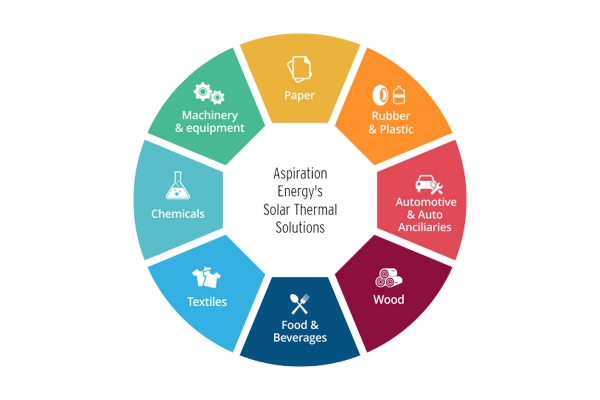
Decentralised solar thermal system for industries
Traditionally, industries use electricity, high speed diesel or furnace oil to achieve process heat temperatures ranging from 70 to 120 °C. Aspiration Energy has developed a solution to meet low and mid temperature process heat demand through decentralized energy generation based on a solar thermal system. Although solar collectors generally heat up to about 70°C, Aspiration’s innovations in fluid pressure, as well as system and module design, have been able to achieve temperatures of up to 120 °C.
India

Aspiration Energy private limited
Decentralised solar thermal system for industries
Traditionally, industries use electricity, high speed diesel or furnace oil to achieve process heat temperatures ranging from 70 to 120 °C. Aspiration Energy has developed a solution to meet low and mid temperature process heat demand through decentralized energy generation based on a solar thermal system. Although solar collectors generally heat up to about 70°C, Aspiration’s innovations in fluid pressure, as well as system and module design, have been able to achieve temperatures of up to 120 °C.
Currently unavailable
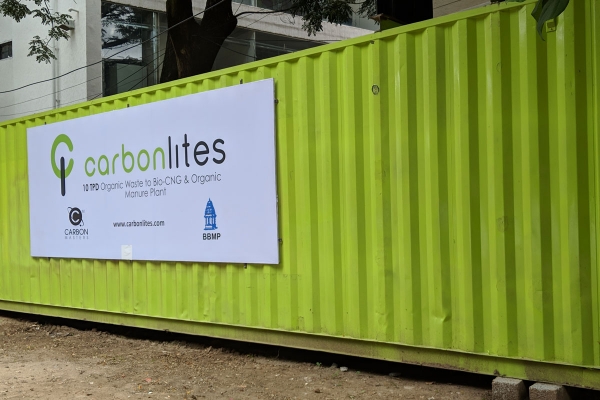
Carbonlites – innovative biogas production
Globally, approximately 11.2 billion tons of waste is generated every year and is amongst the biggest threats affecting our ecosystem. Solid waste dumped at landfill sites produce large amounts of methane, which accounts for 12% of total global methane emissions. Carbon Masters has developed a method for managing the organic waste by collecting and converting the waste into useful fuel. Waste is collected and then treated anaerobically to produce methane gas and organic slurry. The gas is purified, compressed and used as a substitute to LPG for cooking and as fuel in vehicles, while the slurry is treated to produce organic manure used as a replacement to chemical fertilizers.
India
≈10

Carbon Masters India Pvt. Ltd.
Carbonlites – innovative biogas production
Globally, approximately 11.2 billion tons of waste is generated every year and is amongst the biggest threats affecting our ecosystem. Solid waste dumped at landfill sites produce large amounts of methane, which accounts for 12% of total global methane emissions. Carbon Masters has developed a method for managing the organic waste by collecting and converting the waste into useful fuel. Waste is collected and then treated anaerobically to produce methane gas and organic slurry. The gas is purified, compressed and used as a substitute to LPG for cooking and as fuel in vehicles, while the slurry is treated to produce organic manure used as a replacement to chemical fertilizers.
≈10Mt CO2e/year
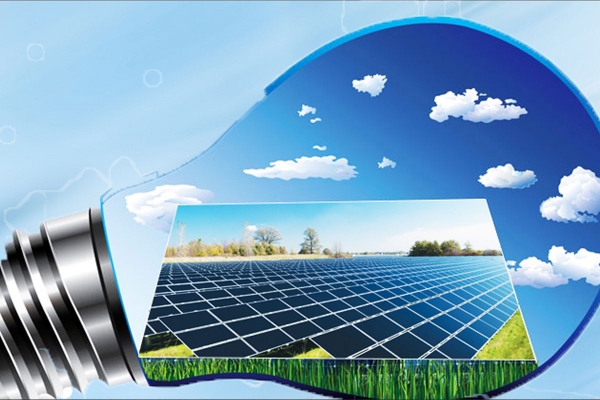
Smart micro-grid for clean energy
Basil Energetics offers a solution to manage green power at the tail end or at the load end of the grid. This helps to cater for both urban and rural areas through its decentralized approach. The offered solution is provided in the form of a package, consisting of standalone solar panels, but also includes a range of innovative hybrid household electrical appliances such as a ceiling fan, LED lights, air conditioner, refrigerator etc. The demand and supply is managed using a smart micro-grid (SMG) controller, called an iGrid. This scheme eliminates the requirement of electrical conversions, particularly DC to AC in hybrid appliances, to a large extent.
India
≈10

Basil Energetics Ptivate Limited
Smart micro-grid for clean energy
Basil Energetics offers a solution to manage green power at the tail end or at the load end of the grid. This helps to cater for both urban and rural areas through its decentralized approach. The offered solution is provided in the form of a package, consisting of standalone solar panels, but also includes a range of innovative hybrid household electrical appliances such as a ceiling fan, LED lights, air conditioner, refrigerator etc. The demand and supply is managed using a smart micro-grid (SMG) controller, called an iGrid. This scheme eliminates the requirement of electrical conversions, particularly DC to AC in hybrid appliances, to a large extent.
≈10Mt CO2e/year
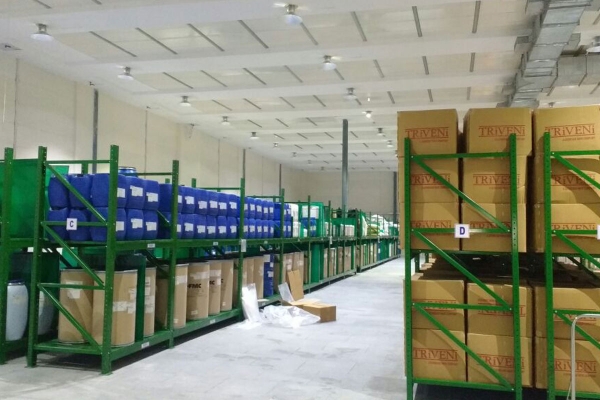
Radiant cooling solution for the building sector
Most commercial buildings have a centralized Heating, Ventilation and Air Conditioning (HVAC) system to meet the indoor cooling demand. The cooling distribution in these systems is a significant contributor to energy consumption in commercial buildings and uses air as a heat transfer medium. Oorja Energy’s “Radiant Cooling Solution” increases efficiencies in cooling distribution. The solution operates on chilled water supply between 16–20°C as compared to conventional centralized HVAC systems that require chilled water supply at 7°C. This leads to significant savings in power as the conventional compressor has to work more to produce chilled water at this low temperature.
India
≈10

Oorja Energy Engineering Service Private Limited
Radiant cooling solution for the building sector
Most commercial buildings have a centralized Heating, Ventilation and Air Conditioning (HVAC) system to meet the indoor cooling demand. The cooling distribution in these systems is a significant contributor to energy consumption in commercial buildings and uses air as a heat transfer medium. Oorja Energy’s “Radiant Cooling Solution” increases efficiencies in cooling distribution. The solution operates on chilled water supply between 16–20°C as compared to conventional centralized HVAC systems that require chilled water supply at 7°C. This leads to significant savings in power as the conventional compressor has to work more to produce chilled water at this low temperature.
≈10Mt CO2e/year

ARUN Solar Concentrator System
Clique Developments Limited manufactures solar concentrators, which generate thermal energy in the form of LP/MP steam or hot water for use in diverse applications like industrial process heating, cooking and comfort cooling. The company’s technology–ARUN® dish is a Fresnel paraboloid solar concentrator with a point focus. It can handle various heat transfer fluids including steam, hot oil, hot water or even hot air at temperatures up to 350°C and pressures up to 25 bar. The small area required for installation makes it ideal for industries with space constraints.
India

Clique Developments Limited
ARUN Solar Concentrator System
Clique Developments Limited manufactures solar concentrators, which generate thermal energy in the form of LP/MP steam or hot water for use in diverse applications like industrial process heating, cooking and comfort cooling. The company’s technology–ARUN® dish is a Fresnel paraboloid solar concentrator with a point focus. It can handle various heat transfer fluids including steam, hot oil, hot water or even hot air at temperatures up to 350°C and pressures up to 25 bar. The small area required for installation makes it ideal for industries with space constraints.
Currently unavailable